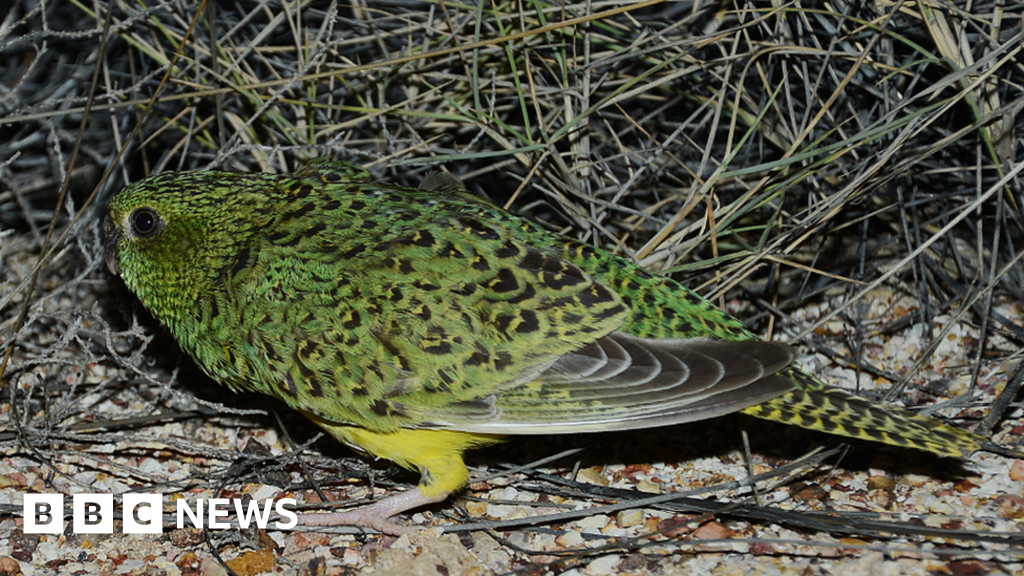
An Australian conservation group has been forced to retract published research on the discovery of an endangered bird.
In 2017, ecologist John Young claimed to have found traces of the night parrot, one of the world's rarest birds, in the state of South Australia.
His findings were published by the Australian Wildlife Conservancy (AWC).
But last year the evidence was called into question by other scientists.
On Friday, AWC - one of the largest conservation organisations in Australia - said it would retract his published research, after a probe found flaws.
Mr Young denies any wrongdoing, telling the Australian Broadcasting Corporation: "I have no interest in any criticism."
The night parrot had not been seen in decades, leading experts to declare it extinct. Since 2013 it has been confirmed to be in Western Australia but no other states.
What was wrong with the evidence?
An independent investigation, commissioned by the AWC, and carried out by other scientists found major discrepancies in Mr Young's research.
The noted ecologist had been hired by the not-for-profit group in 2016, but resigned last year in the wake of the accusations.
For the 2017 discovery, he had submitted a feather, found in a zebra finch nest in Kalamurina Wildlife Sanctuary in South Australia, as proof of the parrot's presence in the remote region.
However, the investigation found that photographs of the feather in the nest did not match up with the specimen later submitted to the South Australian Museum.
Supposed recordings of the parrot's calls at the sanctuary were also found to be "playback" of publicly available recordings.
As a result, the conservation group said it had to correct the public record, and retract the published research.
The bird's presence in a part of Queensland, based on photographs taken by Mr Young in 2013, is now also in dispute.
"The methods used in this work were not consistent with the AWC's usual procedures," said chief executive Tim Allard in a statement on Friday.
He added that the organisation was also retracting other records made by Mr Young in relation to other rare bird species.
https://www.bbc.com/news/world-australia-47664259
2019-03-22 04:49:27Z
CBMiMWh0dHBzOi8vd3d3LmJiYy5jb20vbmV3cy93b3JsZC1hdXN0cmFsaWEtNDc2NjQyNTnSAXlodHRwczovL3d3dy1iYmMtY29tLmNkbi5hbXBwcm9qZWN0Lm9yZy92L3Mvd3d3LmJiYy5jb20vbmV3cy9hbXAvd29ybGQtYXVzdHJhbGlhLTQ3NjY0MjU5P2FtcF9qc192PTAuMSN3ZWJ2aWV3PTEmY2FwPXN3aXBl
Bagikan Berita Ini














0 Response to "Night parrot finding in Australia not backed up by evidence - BBC News"
Post a Comment